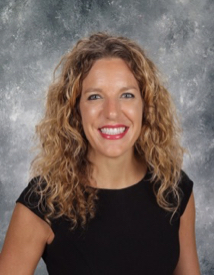When someone asks you what is unique or special about a classical education, you can (and should) say with great confidence, “Content-rich curriculum.” In fact, the content-rich curriculum provided in a classical education is the crown-jewel of the entire model. I cannot emphasize this enough. What makes us stand out from other schools is our focus on laying the groundwork for how to think and what is worth thinking about (the true, the good, and the beautiful). Most education systems in our country right now emphasize programming that focuses on processes and skills. Are these important? Yes, when we are clear on what is worth thinking about, which requires mastery of facts. How can one think critically about something about which one knows nothing? So just what is curriculum, what is Classical Prep’s, and how is it decided? All great questions!
Curriculum is the “what to teach.” In any school setting, teachers and administrators must decide what we want each child at every grade, in every subject, to have mastered in order to move successfully onto the next grade level or class. At Classical Prep, we have a very clear end goal: equipping scholars to be moral and intellectual leaders in a self-governing society. That’s how we are able to pare down what content we choose to teach. The liberal arts are all about teaching one skill: how to think (which includes making good decisions, empathy, processing complex texts, etc.). All modern research shows thinking well requires content stored in long-term memory. Research also shows looking facts up stops complex thinking for the brain so that it can use its energy to find the answer. This is why we love and elevate content and much memorization is required. It is a non-negotiable ingredient of thinking well. Once we’ve decided on the content, we divide it into grades or courses, then break it down into the months, the weeks, and finally the days and minutes to ensure it is taught to mastery in a comprehensive and sequential order. When we say we teach, “bell to bell,” we mean it– we don’t have a minute to lose! It is a rigorous and ambitious process– but one we don’t shy away from because it ensures our end goal is met.
Let’s look at a specific subject as an example: literature and poetry (a cornerstone of classical education.) Think of all the books, stories, poems, sayings, nursery rhymes you remember learning somewhere along the way in your education. We have lists, too! We take these lists and decide in which grade we will teach which stories, poems, and sayings. This helps prevent unnecessary repetition in content, allowing us to teach even more. (Yay!) Once we divide them into grades, we think about how much time would be needed to teach the content to mastery, then put them on a year-long curriculum map (calendar), to see which months we will allocate which poems, stories, rhymes, or saying. Once the months have been determined, we then break it into the weeks and days, and then decide how we will teach it. (We’ll dive into the teaching next week when we talk about instruction.) We call this process “curriculum mapping.” Our teachers and administrators spend countless hours each year (both during the school year and the summer) adjusting and making sure each grade and subject’s maps are “just right” with rigorous, content-rich curriculum that will equip our scholars to be moral and intellectual leaders in a self-governing society. The curriculum taught at Classical Prep is the best in Florida. (I would even be bold enough to say in the country!)
Your next question might be, “Well then, just how do they teach it all?” That is the purpose of next week’s topic– instruction, or “how to teach.”
There are two things I would like you to do this week. First, every scholar at CPS has “memory work”– facts, songs, chants, jingles, lists, poems– in which he/she is expected to memorize. These are assigned by design and are critical components to our curriculum. Knowing that content-rich curriculum is our crowned jewel, continue to ask your child(ren) what facts they are learning and make sure that they are practicing their memory work. It makes a HUGE difference, and helps accelerate their learning! These are perfect for car rides and showing off to relatives and friends!
Dr. Tina Errthum

